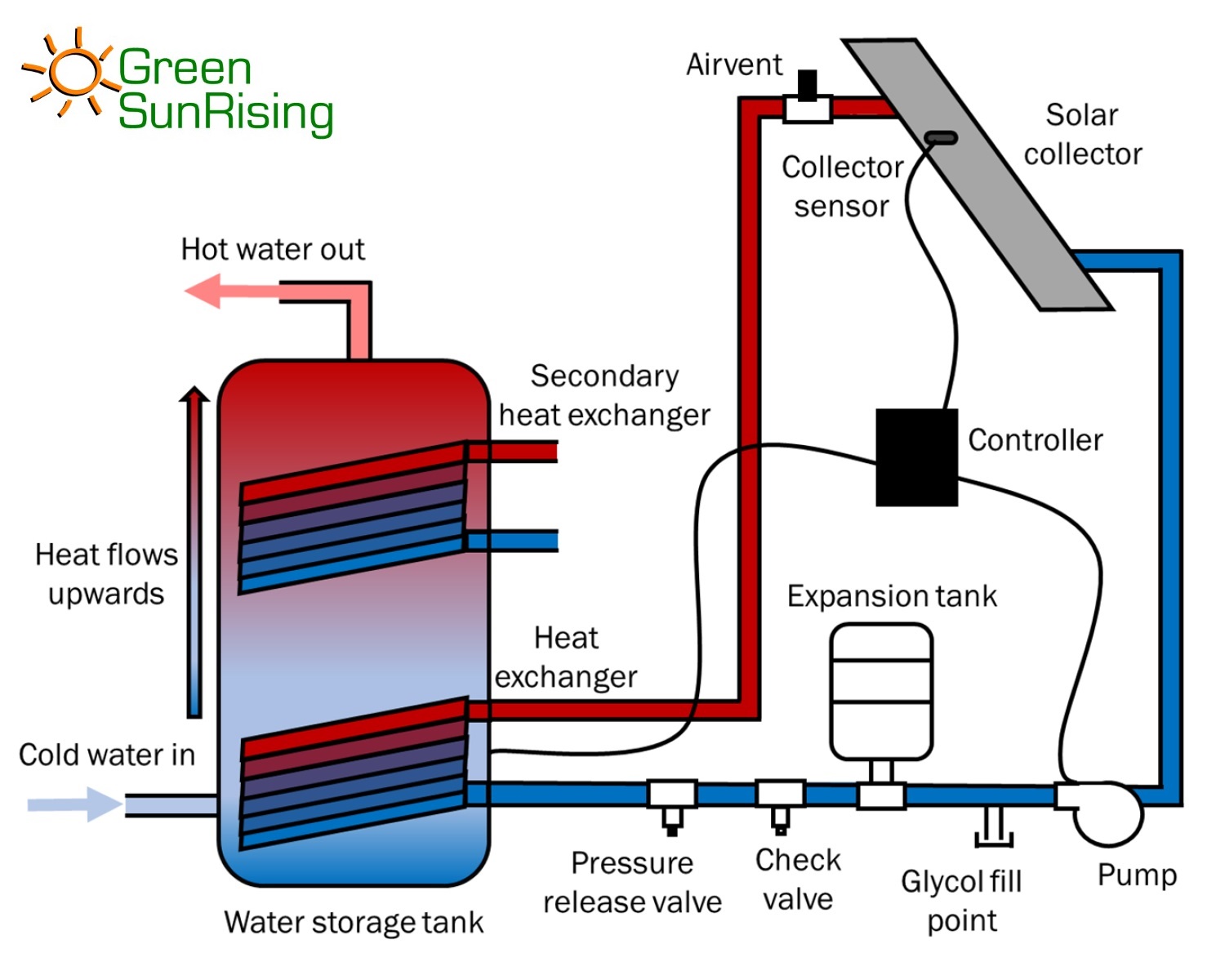The solar collectors convert solar energy directly into heat, which heat up a water-glycol mixture inside the collectors. This frost-protected water-glycol mixture is circulated via piping through a heat exchanger inside a water storage tank, where the heat energy is transferred into the water inside the tank.
Now solar-heated hot water is available for domestic hot water usage, or process heat or any other heat energy requirement.
A well-made solar collector can have a thermal efficiency of up to 80%, making solar thermal a very efficient way to harness the sun’s energy. Under favorable sunny conditions, solar energy will be enough to cover the complete water heating needs. A supplemental water heater is used for times when solar energy in not sufficiently available. Typically, 40 to 60% of the annual hot water needs of a household can be met with solar energy, and a well built system will have a productive life span of 25 to 40 years.
Using a second built-in heat exchanger, solar energy can also be used for hydronic or radiant building heating and can contribute further substantial energy savings. Commercial and industrial applications are also very feasible and are being used more and more. Campgrounds, hotels, gyms, laundries, factories, office buildings, anywhere where hot water or building heating is required, solar energy can and should be used.
It is a common misconception that Canada does not get enough solar energy or is too cold for solar thermal heating. To the contrary, Canada is very suitable for the use of solar energy. Southern Canada gets more sun energy than Germany, where over 1 million solar thermal systems are already installed and are reliably performing their functions.
After the initial system investment, the sun’s energy is for free, without future price increases due to rising fossil energy costs. Additionally, it is clean and non-polluting. Why should we mortgage our children’s future with avoidable CO2 emissions when we can use solar energy for what solar energy can do so well, namely heating water? This also and particularly applies to pool heating. No fossil fuels should be used any more for pool heating, since solar energy can do this so much better, and non-polluting.
The European parliament has passed a resolution recommending to all member countries to introduce legislation mandating the use of solar thermal systems in all new residential buildings. In parts of Europe as well as in countries like Israel and China, solar thermal has become mainstream.
Solar thermal energy can also be used for solar cooling. Using the same high-efficiency collectors and storage tank and adding a second cooling cycle driven by the energy drawn from the storage tank, solar energy can be used for cooling. Solar thermal energy can also be used for large-scale process heat, more at SOLID.
For questions and inquiries, you can contact us through our contact page, by phone at 519-946-0408, or email us at info@greensunrising.com.

You must be logged in to post a comment.